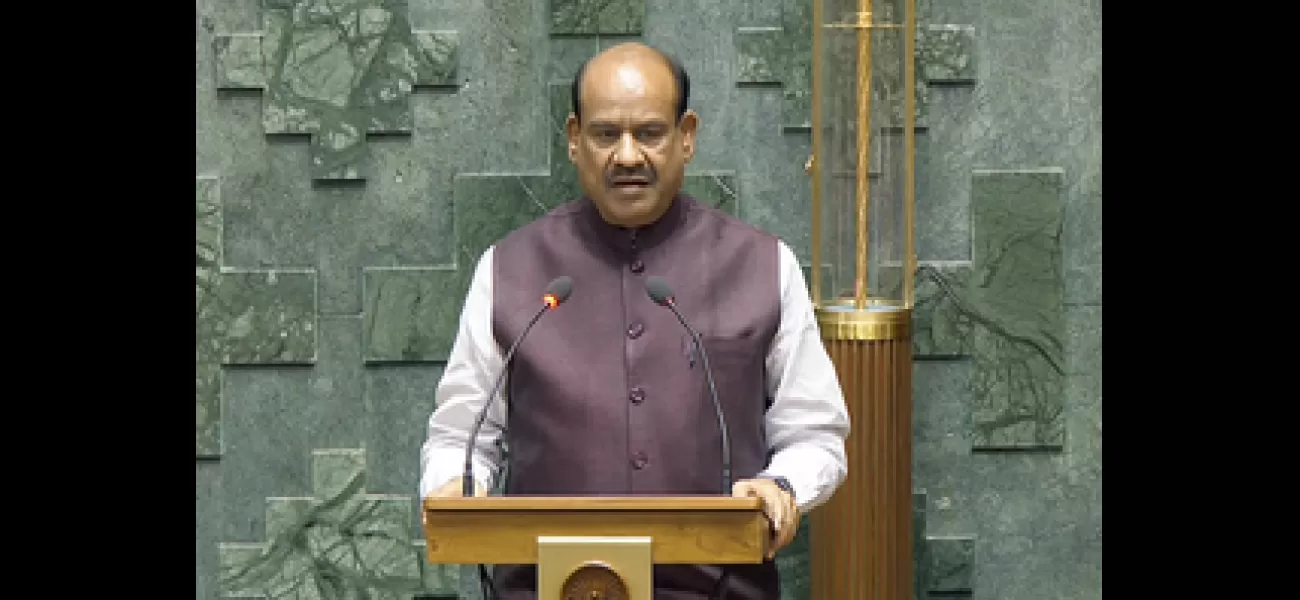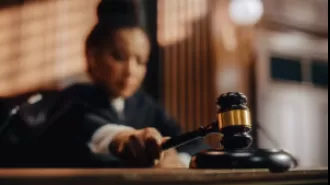A resolution that lacks determination and conviction, often leading to failure.
Should Speaker of Lok Sabha, Om Birla, be criticized for condemning the Emergency that happened 50 years ago during the first session of his term?
July 1st 2024.

There has been some discussion about whether it was appropriate for newly-elected Speaker of the Lok Sabha, Om Birla, to present a resolution on the first day of the new session condemning the Emergency that occurred over 50 years ago under Prime Minister Indira Gandhi. While some may argue about the political correctness of this move, what really matters is the timing and relevance of it all. By bringing attention to the Congress as a potential threat to the country's Constitution, rather than the BJP as the Congress had campaigned during the recent elections, the ruling party has revealed just how shaken they were by their failure to form a government on their own. It is widely believed that the BJP did not secure a majority because voters were convinced by the Congress' message that the Constitution was in danger and the real threat came from the BJP. There were even fears that if the BJP had achieved their goal of securing 400 seats, they would change the Constitution and impose a dictatorship, as their slogan had suggested.
It seems clear that the BJP is now anxious about the fact that a convincing narrative was created, one that painted the saffron party under PM Modi as a threat to the Constitution. This is a situation that could potentially pose an existential crisis for the brand of politics that is represented by the RSS-controlled BJP. Over the past 50 years, the Congress' opponents have continuously used the Emergency imposed by Indira Gandhi in 1975 for political and electoral gains. However, this topic has been exhausted and there is little more to gain from it. Especially since Indira and her party faced a humiliating defeat in the following elections, proving the power of the Indian voter and their rejection of the Emergency.
It should be noted, however, that the downfall of the Janata Party Government occurred when Charan Singh split and sought help from the Congress to form a minority government at the Center. The Congress eventually withdrew their support, leading to another round of Lok Sabha elections where they came back to power in 1980. This time, the voters blessed Indira once again, seemingly washing away the sins of the Emergency and allowing the Congress to start anew.
Recently, a resolution was brought before Parliament, stating that the dictatorship imposed by Indira Gandhi during the Emergency crushed the country's democratic values and silenced freedom of expression. It also acknowledged that many people lost their lives under the "dictatorial" Congress government and called for a two-minute silence to honor the deceased. There is no doubt that the Emergency in 1975 was a dark period in India's post-independence history. The country can never condone ruling by decree, the suspension of civil liberties and free speech, and the arbitrary actions and vindictive arrests of dissenters and Opposition figures that occurred during this time. It is important for future generations to learn the right lessons from the trauma that the country endured during this period.
But, using the first day of the 18th Lok Sabha and the first day of the parliamentary session to bring up this issue is not only a breach of propriety, but also reflects poorly on the Speaker's office. It can be seen as a bit of a contradiction, considering the same Speaker had been accused of authoritarianism during the previous Lok Sabha. Therefore, lectures on upholding democratic principles from the Chair may not inspire much confidence. In fact, Om Birla had previously used his powers to suspend a large number of Opposition MPs, leading many to believe that it was at the behest of the government. In this light, the Speaker's resolution raises suspicions about the true motive behind it.
When looking at Parliament's track record over the past 10 years, their concerns about the subversion of laws during the Emergency seem insincere. Mere resolutions from the Chair, without any transparent and democratic functioning of the government, can be seen as nothing more than lip service in the name of strengthening democracy.
It seems clear that the BJP is now anxious about the fact that a convincing narrative was created, one that painted the saffron party under PM Modi as a threat to the Constitution. This is a situation that could potentially pose an existential crisis for the brand of politics that is represented by the RSS-controlled BJP. Over the past 50 years, the Congress' opponents have continuously used the Emergency imposed by Indira Gandhi in 1975 for political and electoral gains. However, this topic has been exhausted and there is little more to gain from it. Especially since Indira and her party faced a humiliating defeat in the following elections, proving the power of the Indian voter and their rejection of the Emergency.
It should be noted, however, that the downfall of the Janata Party Government occurred when Charan Singh split and sought help from the Congress to form a minority government at the Center. The Congress eventually withdrew their support, leading to another round of Lok Sabha elections where they came back to power in 1980. This time, the voters blessed Indira once again, seemingly washing away the sins of the Emergency and allowing the Congress to start anew.
Recently, a resolution was brought before Parliament, stating that the dictatorship imposed by Indira Gandhi during the Emergency crushed the country's democratic values and silenced freedom of expression. It also acknowledged that many people lost their lives under the "dictatorial" Congress government and called for a two-minute silence to honor the deceased. There is no doubt that the Emergency in 1975 was a dark period in India's post-independence history. The country can never condone ruling by decree, the suspension of civil liberties and free speech, and the arbitrary actions and vindictive arrests of dissenters and Opposition figures that occurred during this time. It is important for future generations to learn the right lessons from the trauma that the country endured during this period.
But, using the first day of the 18th Lok Sabha and the first day of the parliamentary session to bring up this issue is not only a breach of propriety, but also reflects poorly on the Speaker's office. It can be seen as a bit of a contradiction, considering the same Speaker had been accused of authoritarianism during the previous Lok Sabha. Therefore, lectures on upholding democratic principles from the Chair may not inspire much confidence. In fact, Om Birla had previously used his powers to suspend a large number of Opposition MPs, leading many to believe that it was at the behest of the government. In this light, the Speaker's resolution raises suspicions about the true motive behind it.
When looking at Parliament's track record over the past 10 years, their concerns about the subversion of laws during the Emergency seem insincere. Mere resolutions from the Chair, without any transparent and democratic functioning of the government, can be seen as nothing more than lip service in the name of strengthening democracy.
[This article has been trending online recently and has been generated with AI. Your feed is customized.]
[Generative AI is experimental.]
0
0
Submit Comment





